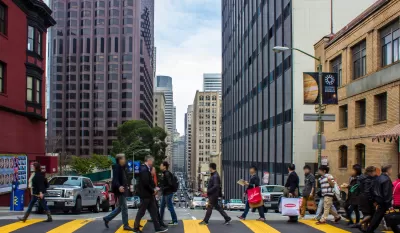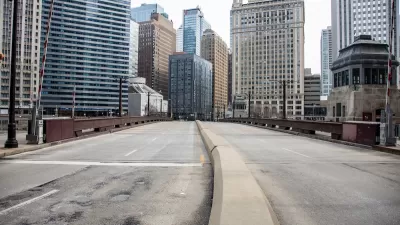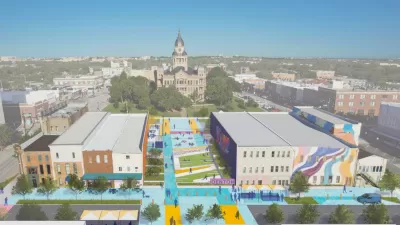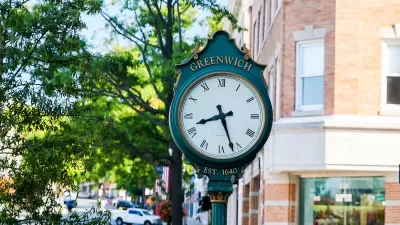Traditionally car-friendly Business Improvement Districts are turning to walkability and bike infrastructure to replace the 9-to-5 crowd and boost local economies.

In a piece for Bloomberg CityLab, John Surico describes the historically car-oriented politics of Business Improvement Districts (BIDs), business groups that emerged in the 1970s as a response to declining downtown conditions. “Historically, BIDs also typically favored access for cars, prioritizing suburban commuters and visitors with amenities like parking discounts and public lots. Indeed, the built environment of the American downtown — a ‘precarious urban monoculture’ optimized for white-collar work — is one that these groups helped cement into being.”
Now, “it’s striking to see the same groups now bang the gong for bike lanes, vehicle bans and pedestrian-focused facelifts. Reeling from the rise of remote work and the ongoing effects of the Covid pandemic, business groups are embracing policies and practices they long shunned.”
While not all BIDs are changing their views, many in the country’s biggest cities are recognizing the value of pedestrian and bicycle traffic and reorienting their efforts to new downtown residents and visitors in the post-pandemic era. “The paradigm shift that’s now underway could pay big dividends for walkability boosters — and be crucial to the survival of the urban core.”
“It took decades to create the modern office district; now that its critical vulnerabilities have been exposed, adapting these neighborhoods to again welcome a more diverse set of uses stands to be a similarly prolonged process.” Surico points out that BIDs, with their significant influence and resources, can be a key partner in creating more livable, walkable downtowns.
FULL STORY: As Downtowns Struggle, Businesses Learn to Love Bike Lanes

Planetizen Federal Action Tracker
A weekly monitor of how Trump’s orders and actions are impacting planners and planning in America.

Restaurant Patios Were a Pandemic Win — Why Were They so Hard to Keep?
Social distancing requirements and changes in travel patterns prompted cities to pilot new uses for street and sidewalk space. Then it got complicated.

Map: Where Senate Republicans Want to Sell Your Public Lands
For public land advocates, the Senate Republicans’ proposal to sell millions of acres of public land in the West is “the biggest fight of their careers.”

Maui's Vacation Rental Debate Turns Ugly
Verbal attacks, misinformation campaigns and fistfights plague a high-stakes debate to convert thousands of vacation rentals into long-term housing.

San Francisco Suspends Traffic Calming Amidst Record Deaths
Citing “a challenging fiscal landscape,” the city will cease the program on the heels of 42 traffic deaths, including 24 pedestrians.

California Homeless Arrests, Citations Spike After Ruling
An investigation reveals that anti-homeless actions increased up to 500% after Grants Pass v. Johnson — even in cities claiming no policy change.
Urban Design for Planners 1: Software Tools
This six-course series explores essential urban design concepts using open source software and equips planners with the tools they need to participate fully in the urban design process.
Planning for Universal Design
Learn the tools for implementing Universal Design in planning regulations.
Heyer Gruel & Associates PA
JM Goldson LLC
Custer County Colorado
City of Camden Redevelopment Agency
City of Astoria
Transportation Research & Education Center (TREC) at Portland State University
Camden Redevelopment Agency
City of Claremont
Municipality of Princeton (NJ)





























